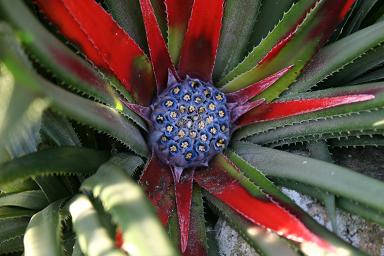
| Home | Index | Web Stuff | Copyright | Links | Me |

This is the broad leaved form of Fascicularia bicolor. It flowers less freely than F.b.canaliculata, but the broad leaves are spectacular when the do bloom.

The naming of Fascicularia has been simplified recently - one species, two subspecies! It has the advantage of removing the confusion that surrounded the profusion of
similar clones that had previously all attracted names for themselves.
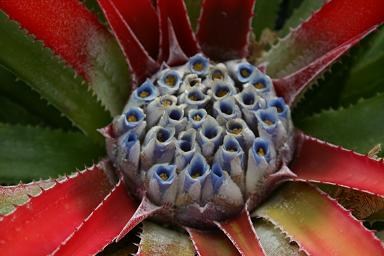
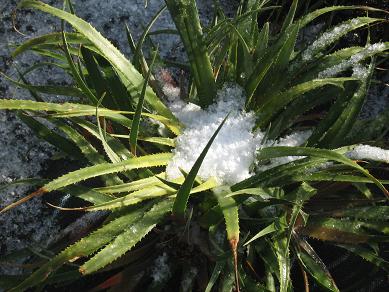
I doubt it appreciated a quick covering of snow in april, but it survived without damage.
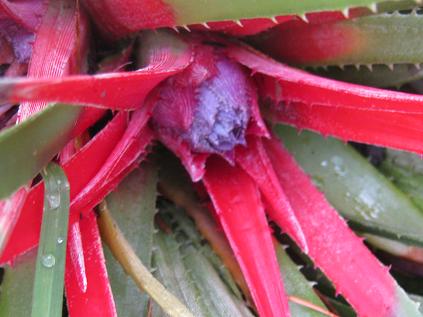
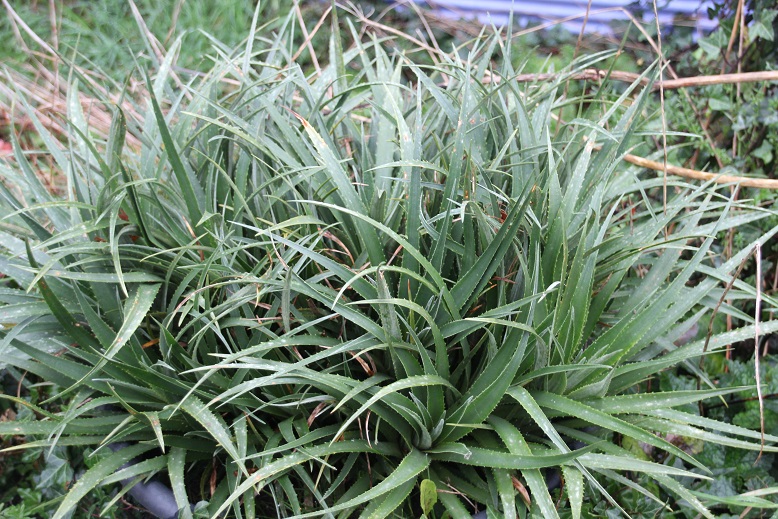
I have done a little too much worrying that this might be too tender to grow here. It has a reputation for being more tender than
F. bicolor ssp. canaliculata and it may be true. I have seen the broad leaves scorched by a radiation frost
after a really cold night but the plant seems to grow out of it quite well. It is commonly found growing in public gardens in all the coastal towns,
but I don't recall seeing it inland which suggests that it doesn't survive. Experience has shown that it is tough enough to grow here
and I shouldn't listen to the scare stories.
The reputation for being tender is probably derived from the more northerly distribution of the type subspecies in Chile, though the two taxa overlap.
This is the current taxonomic position though there is plenty of scope for disagreement. This plant was originally described as F. pitcairnifolia,
a name that continues to haunt collections (mine included).